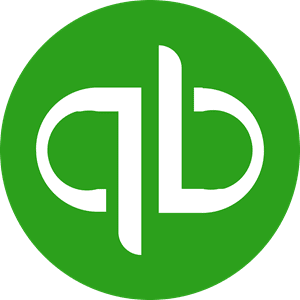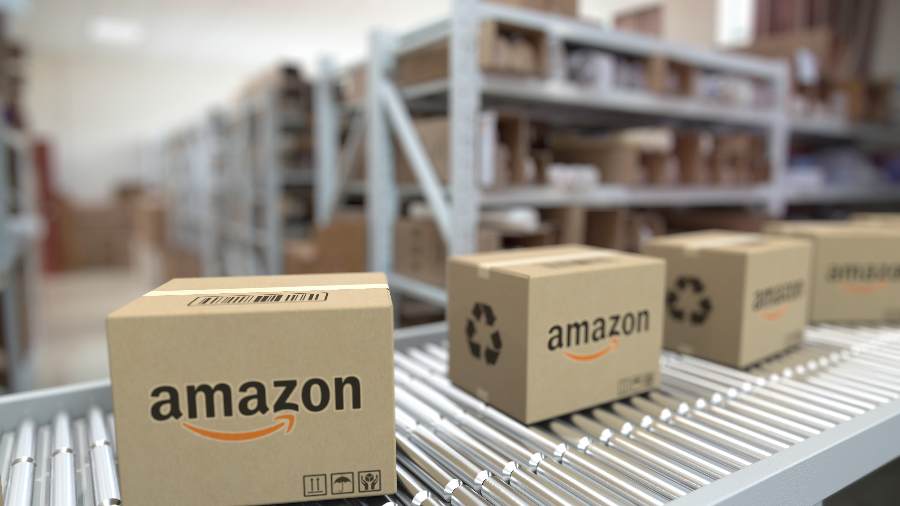The best accounting software for Amazon sellers offer inventory management, comprehensive reporting capabilities, and seamless integration with Amazon Seller Central. A must-have feature for Amazon sellers is accounting software that tracks COGS automatically, which is why our list below is quite short.
Here are the four best accounting software for Amazon sellers:
- Xero: Best for overall accounting software for Amazon sellers
- QuickBooks Online: Best for easy sales sync with Amazon
- Zoho Books: Best mobile app for Amazon sellers
- Sage 50: Best desktop accounting software for Amazon sellers
Comparison of Best Accounting Software for Amazon Sellers
Monthly Pricing | Number of Users | Free Trial | Sales Sync With Amazon | Inventory Sync With Amazon | |
|---|---|---|---|---|---|
 | $20-$80 | Unlimited | 30 days | A2X | A2X |
 | $99 or $235 | 5 or 25 | 30 days | Built-in feature | A2X |
 | $0-$275 | 14 days | WooCommerce | Zoho Inventory | |
 | $60.08-$177.17 | Commercient | Zoho Inventory | ||
Xero: Best Overall Accounting Software for Amazon Sellers

Pros
- Has inexpensive starter plans that include inventory accounting
- Offers excellent all-around accounting features
- Has strong inventory accounting
- Provides unlimited users in all plans
Cons
- Requires you to set up sales tax rates manually for each location with a taxable sale
- Has a mobile app, but is not as good as other cloud accounting software
- Lacks customer support by phone or live chat
- Won’t let you file sales tax returns
Xero offers a choice of three plans, which range in price based on the number of invoices and bills allowed and other available features. All plans include inventory accounting and unlimited users.
- Early: $20 per month for 20 invoices and five bills
- Growing: $47 per month for unlimited invoices and bills
- Established: $80 per month for unlimited invoices and bills, plus multiple currencies
You can sign up for Xero’s 30-day free trial before subscribing to a plan.
Xero is an excellent small business accounting software. While it doesn’t have all the integrations and additional functionality of QuickBooks Online, its bookkeeping features are on par. The Growing plan is very popular and has the basic accounting features like invoicing (A/R), tracking bills (A/P), and inventory while costing 50% less than QuickBooks Online Plus.
We recommend using A2X—a third-party integration—to connect both your inventory and sales between Xero and Amazon. The A2X Amazon Xero integration starts at just $29 for 200 transactions per month.
Xero performed very well in our case study focused on accounting software for Amazon sellers, scoring an impressive 4.6 out of 5. It aced pricing because all plans include inventory accounting, whereas, with QuickBooks Online, the Simple Start and Essentials plans are missing inventory accounting and, therefore, not suitable for Amazon sellers.
Xero scored only 3 out of 5 for its Amazon integration because it requires a third-party integration. The good news is the third-party integration—A2X—works for both revenue and inventory and is fairly inexpensive at only $29 monthly.
The main weaknesses we found with Xero include its lack of customer support and underwhelming mobile app. Xero’s customer support is missing any sort of live interaction with a person. Your choices for customer support are limited to a chatbot, self-help material, or email. On the other hand, its mobile app allows you to send invoices and manage unpaid bills, but not much else. If a powerful mobile app is important to you, then we recommend Zoho Books.
QuickBooks Online: Best for Easy Sales Sync With Amazon

Pros
- Connects to Amazon sales data directly from bookkeeping software
- Calculates sales tax rates to apply to an invoice automatically based on address
- Integrates with dozens of apps commonly used by Amazon
- Has a capable mobile app
Cons
- Doesn’t support inventory accounting in lower-tier plans
- Requires some accounting knowledge to use software
- Has no customer service telephone number
- Doesn’t support the average cost method of inventory accounting
QuickBooks Online offers a choice of four subscription plans, although only Plus and Advanced have inventory accounting, which we consider crucial for Amazon sellers.
- Simple Start: $35 per month for one user (no inventory accounting)
- Essentials: $65 per month for three users (no inventory accounting)
- Plus: $99 per month for five users
- Advanced: $235 per month for up to 25 users
Subscribe to QuickBooks Online’s 30-day free trial or sign up right away to get 50% off for the first three months.
QuickBooks Online has built its Amazon connector directly into the bookkeeping software—simply click “Commerce” in the left menu bar. In addition to Amazon, you can connect eBay, Etsy, and Shopify. Unfortunately, the connection only synchronizes sales data, not inventory data. Similar to other software on this list, you’ll need a third-party integration to sync inventory. We recommend either A2X or EntriWise.
In addition to its built-in Amazon connection, QuickBooks has industry-leading accounting features, making it our best small business accounting software. While we think it is best for most small businesses, it might be too expensive for some Amazon sellers because you must get at least its Plus plan at $99 monthly to have inventory accounting.
QuickBooks Online is great software and scored extremely well for general accounting features, inventory accounting, and Amazon integrations. The problem is its price—specifically, the lower-priced tiers exclude inventory accounting, making them inappropriate for Amazon sellers.
To use QuickBooks Online, Amazon sellers will need to purchase Plus for $99 a month, whereas Xero offers a plan with inventory accounting and unlimited transactions for only $42 per month.
QuickBooks’ mobile app is good but not great. While it scored better than Xero’s mobile app, it’s not as comprehensive as the mobile app from Zoho Books.
Zoho Books: Best Mobile App for Amazon Sellers

Pros
- Integrates with Amazon directly
- Has a fantastic mobile app
- Integration with Avalara for sales tax compliance
- Is feature-packed and more affordable than competitors
Cons
- Has no ecommerce integrations unless you subscribe to Zoho Inventory or Zoho Flows
- Is unable to determine sales tax by location
- Has only email support in the free plan
- Requires a third-party integration for inventory sync with Amazon
Zoho Books offers a free plan for businesses with less than $50,000 in annual revenue. This allows you access for one user and an accountant. There are also five paid options, which vary in price based on the number of users and available features. Additional users are $3 per seat, per month.
- Free: Available for businesses with less than $50,000 in annual revenue (no inventory)
- Standard: $20 per month for up to three users and 500 customers and vendors (no inventory)
- Professional: $50 per month for up to five users
- Premium: $70 per month for up to 10 users
- Elite: $150 per month for up to 10 users and advanced inventory control
- Ultimate: $275 per month for up to 15 users, 25 custom modules, and advanced analytics
The provider also offers a 14-day free trial.
Zoho Books has the best mobile app of any small business accounting software we’ve reviewed. It allows you to perform all the same functions as the web-based version, making Zoho Books ideal if you rarely sit at your desk.
Like all the software listed in our guide, Zoho Books has very solid accounting features, including the inventory features that Amazon sellers need. To integrate with Amazon, you’ll need Zoho Inventory—starting at $29 per month—in addition to Zoho Books. Unfortunately, Zoho Inventory doesn’t sync your sales data, so you’ll need a third-party app, like WooCommerce.
Zoho Books scored well across all categories but was especially strong in the mobile app category where it handily beat its competitors, with a perfect score of 5. It also aced inventory accounting and received 4.7 points for general accounting features.
It scored a little lower than QuickBooks and Sage 50 in customer support because of its lack of support from independent bookkeepers. We are unaware of any online bookkeeping firms that support Zoho Books, and you might be hard-pressed to find a Zoho Books Advisor in the US—there are fewer than 100 Zoho Books Advisors nationwide.
Sage 50: Best Desktop Accounting Software for Amazon Sellers

Pros
- Has powerful inventory management features
- Allows you to sell in multiple currencies
- Provides accessible customer support
- Lets you connect to the cloud with Remote Data Access or Microsoft OneDrive
- Features strong reporting and analytics tools
Cons
- Is expensive for multiple users
- Makes it difficult to integrate with Amazon
- Has a mobile app that only captures receipts
- Can have a steep learning curve
Sage 50 has three plans available, either as a monthly or annual billing option. Prices vary based on the number of users and available features.
- Pro Accounting: $60.08 per month or $607 per year for one user
- Premium Accounting: $103.92 to $239.17 per month or $1,043 to $2,391 per year for up to five users
- Quantum Accounting: $177.17 to $.67452 per month or $1,780 to $4,546 per year for up to 10 users (custom price for 11 or more users)
While there is no free trial available, you can evaluate Sage 50 with a free “test drive” in a cloud-hosted version accessible from the Sage 50 pricing page.
While there are many advantages to cloud-based accounting software, some users still prefer desktop software. With QuickBooks Desktop no longer selling to new customers after September 30, 2024, Sage 50 becomes the clear frontrunner in small business desktop accounting software.
Some of the advantages of desktop software include faster input and navigation between screens and total control of your data. Of course, it’s also up to you to keep the data backed up and safe. Another downside of desktop software is that it tends to be harder to find integrations, and that’s certainly true for Sage 50 and Amazon.
It’s possible to build your own integrations using Sage 50’s API, but it will be harder than with cloud-based software. The only pre-built connection between Sage 50 and Amazon we were able to find was Commercient for $799 per month—clearly only for fairly large companies.
Sage 50 is excellent general small business accounting software and scored extremely well for general accounting and inventory features. It’s also very affordable for a single user at just $60 a month, but it is the most expensive software in this guide for five users. Sage 50 also scores well for customer support, with the most customer support options of any software on our list.
There are a few areas of concern with Sage 50 for Amazon sellers. First, as we discussed above, it’s harder to integrate with Amazon than the other software. It also has a very limited mobile app—especially compared to Zoho Books’ amazing app. All you can do in the Sage 50 app is upload receipts, which isn’t surprising since the accounting software is run from your desktop computer or local network.
How We Evaluated Accounting Software for Amazon Sellers
10% of Overall Score
We evaluated each provider’s pricing for one, three, and five users. Because of the sophistication required, we allowed for higher pricing than in other accounting software guides. However, we only included the prices for plans that provided inventory accounting and didn’t give credit for lower-priced plans without inventory accounting.
25% of Overall Score
We evaluated general accounting features like banking and cash management, A/P, A/R, tax, and reporting. Amazon sellers require strong accounting software, so—not surprisingly—all providers in this guide scored very well for general features.
20% of Overall Score
25% of Overall Score
Amazon sellers need their accounting software to integrate with Amazon for sales and inventory. We evaluated each tool for the options available to make these integrations. We awarded the most points to software with free native integrations, but we also gave high points if good third-party integrations were readily available.
5% of Overall Score
We gave only a 5% weight to the mobile app score, as we don’t think this should be a major factor for most Amazon sellers—good inventory accounting and integrations are far more important. When evaluating mobile apps, we like to see all the major features available in the desktop version also available in the mobile app.
5% of Overall Score
5% of Overall Score
Our user review scores are a compilation of actual user reviews left on popular review websites.
5% of Overall Score
We evaluate customer service based on the available service options. We look for do-it-yourself (DIY) help materials, chatbots, live chat, email, and live telephone support.
How to Choose the Best Accounting Software for Amazon Sellers
There are several factors to consider to ensure you find the best option for your business. By carefully considering these items, you can make an informed decision and choose the accounting software that best suits your specific needs as an Amazon seller.
- Your needs: Start by understanding your specific accounting needs as an Amazon seller. Consider the size of your business, the volume of transactions, the complexity of your inventory management, and any specific accounting requirements you may have.
- Integration with Amazon: Look for accounting software that integrates seamlessly with the Amazon platform. It should be able to import and reconcile your sales, fees, refunds, and other relevant data automatically. This saves time and minimizes errors in data entry.
- Inventory accounting: To determine the profitability of your business, it is necessary to use accounting software that can handle inventory accounting and track your COGS. This helps to ensure that you have the right products in stock at all times, minimizing the risk of losing out on sales due to inventory shortages.
- Features and functionality: Evaluate the features and functionality offered by different accounting software options. Key features to consider include invoicing, inventory management, expense tracking, bank reconciliation, financial reporting, tax management, and multicurrency support. Determine which features are essential for your business.
- Scalability: Consider the scalability of the accounting software. Ensure that it can accommodate your growing business needs and handle increasing transaction volumes effectively. It should be flexible enough to adapt as your business expands.
- User-friendliness: Ease of use is crucial, especially if you or your team members aren’t accounting experts. Look for software with an intuitive interface and clear navigation. Consider whether it offers helpful tutorials, customer support, or a knowledge base to assist you with using the software effectively.
- Integration with other tools: Consider whether the accounting software integrates with other tools you use in your business, such as inventory management software, customer relationship management (CRM) systems, or tax software. Integration can help streamline your workflows and ensure smooth data transfer between platforms.
- Reporting and analytics: Robust reporting capabilities are essential for monitoring your business’ financial health. Look for software that provides detailed financial reports, customizable dashboards, and analytics to help you gain insights into your Amazon sales, expenses, profitability, and cash flow.
- Pricing: Consider your budget and evaluate the pricing models of different accounting software options. Some software may charge a monthly subscription fee, while others may have a one-time purchase cost. Be mindful of any additional fees for additional users or premium features.
Frequently Asked Questions (FAQs)
Your accounting software should pull the following information from Amazon: sales transactions, fees and expenses, refunds and returns, shipping and fulfillment costs, inventory management, sales tax, payment settlements, and currency conversions. The specific data available for retrieval may vary depending on the specific accounting software you choose and the integration options it offers with Amazon’s application programming interface (API) or third-party apps.
Yes, both QuickBooks Online and Xero are widely used accounting software that integrates with Amazon. They offer features designed specifically for Amazon sellers and provide robust accounting functionality.
Yes, many accounting software options provide features to assist with sales tax calculations for Amazon sellers. They can automate the calculation of sales tax based on transaction data, determine the appropriate tax rates, and generate reports to help with sales tax compliance.
Bottom Line
Selecting the best Amazon sellers’ accounting software is crucial for efficient financial management. While several options are available, QuickBooks Online, Sage 50, and Xero all offer robust features, such as seamless integration with Amazon, inventory management, sales tax support, and multiuser collaboration. Meanwhile, Zoho Books is a good choice for Amazon sellers seeking access to other useful integrations, such as Zoho Inventory.


